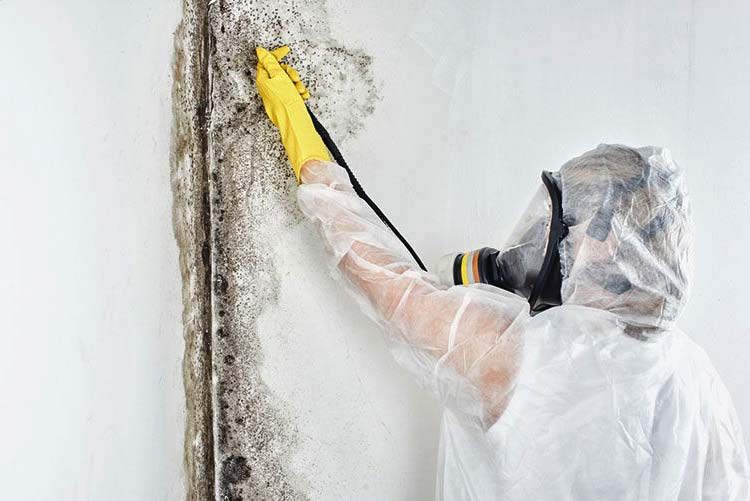Who is accountable for managing the removal of mold in a leased property in Rhode Island?
Landlord-tenant laws in Rhode Island require that landlords prevent the occurrence of mold by handling all moisture and ventilation problems. When not addressed on time and correctly, they may cause mold growth in a property.
Tenants must report moisture-related problems as soon as they happen. Landlords must fix the problem within a reasonable time before they cause damage to the home and the tenant’s belongings.

What we cover
ToggleLandlord rights and responsibilities in Rhode Island
- Keep the property safe and habitable.
- Make all repairs for problems reported within a reasonable time.
- Keep all electrical and plumbing appliances in good working condition.
- Meet all required local housing regulations.
- Lawful evictions.
- Collect rent in agreed-upon amounts and time.
- Supply heat and both hot and cold water.
- Provide garbage receptacles and ensure timely and proper removal.
Tenant rights and responsibilities in Rhode Island
- Maintain the property in safe, sanitary, and habitable conditions.
- Pay rent on time.
- Do not damage the property intentionally.
- No retaliation by a landlord for reporting to a government agency.
Resource: See other states mold laws here
How long does a Rhode Island landlord have to fix mold?
Landlords in Rhode Island have up to 20 days upon receiving notice of the presence of mold to have it repaired.
Tenants are required to allow their landlords reasonable time to fix reported problems.
When it is an emergency, landlords have up to 48 hours to fix mold or other damage in their homes.
If you cannot contact your landlord during an emergency, you can repair and deduct the cost from your rent. Provide the landlord with a receipt of the repairs.
If they fail to fix the problem, Rhode Island law allows tenants to withhold rent until the landlord fixes their problem. Tenants can also pay for repairs worth up to $125 and deduct it from the rent.
However, tenants must give written notice to the landlord of their intention.
Mold disclosure law in Rhode Island?
Rhode Island laws require landlords and property sellers to provide tenants and buyers with information on mold on their premises.
Federal law also requires property sellers to disclose the presence of lead paint for homes built before 1978.
Additionally, landlords have to disclose any environmental hazards they are aware of in or around the house.
Can you break your rental lease in Rhode Island due to mold?
In Rhode Island and many states, tenants are legally not allowed to break the rental lease if the cause of the mold is their fault.
When tenants notice problems that can cause mold, they should report them to the landlord immediately.
Leaking pipes, taps, floods, and spills are causes of mold in the house. Report these to your landlord before they cause more problems in your unit.
Document the problems in photos and inform your landlord in writing. Also, record all the discussions and promises that the landlord offers.
If the landlord does not fix the problems you report and mold gets too unmanageable levels, you are allowed to withhold the rent until the landlord repairs the mold.
You must have notified your landlord of your intention to repair in writing before the rent is due.
Constructive eviction is when you break your lease since the unit is no longer habitable because the landlord refused to fix the problems.
If the landlord sues you for the rest of the rent, you must prove in court that the house was uninhabitable, the mold was not your fault, and that you had notified your landlord, and they did not fix the house.
You can legally break your lease to start active military duty or if the landlord discriminates against you.
Can a Rhode Island tenant withhold rent due to mold?
A Rhode Island tenant can withhold rent to compel the landlord to fix some damage in the unit.
Additionally, if the landlord does not repair the problems after a reasonable time, the tenant can repair and deduct the costs from the rent. The tenant must also provide the landlord with an itemized list of the repairs.
Further, the amount deducted from the rent or the cost of repairs must not exceed $125.
Can a Rhode Island tenant seek justice in court due to mold?
In Rhode Island, a tenant can sue the landlord for mold when;
- The landlord refused to fix water leaks reported before the mold appeared.
- If you have spent money in a hospital or on medication due to mold exposure.
- Lost income due to a condition caused by mold exposure.
- If you have spent any money to remediate the mold.
- For mold-related damage to your property not covered by your renters’ insurance.
- For pain and suffering caused by the health effects of mold.
- The mold presence is not your fault.













